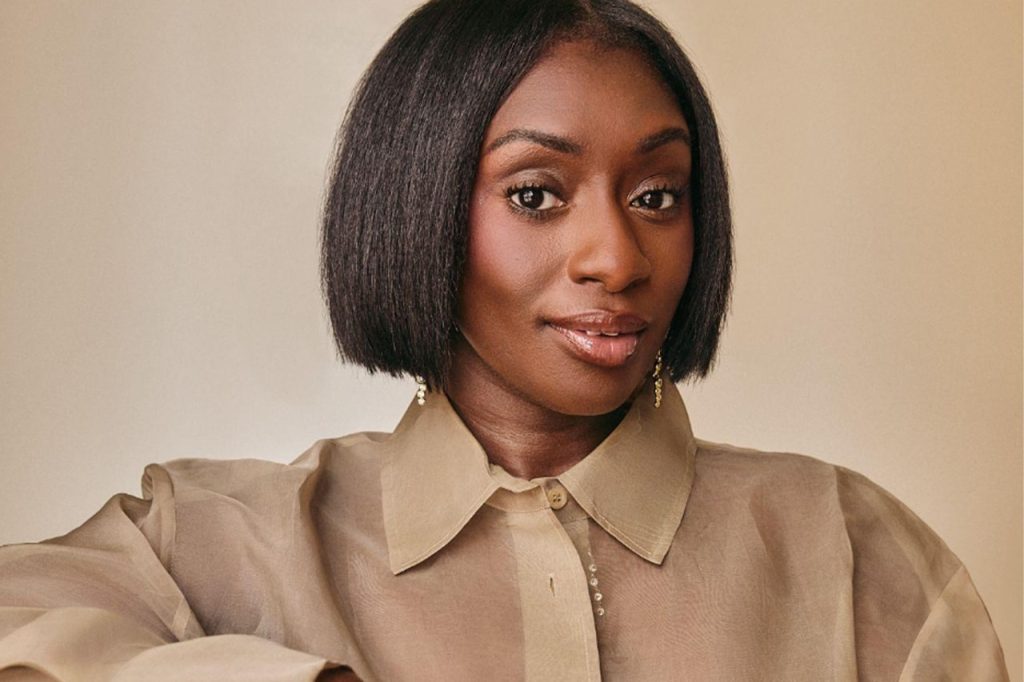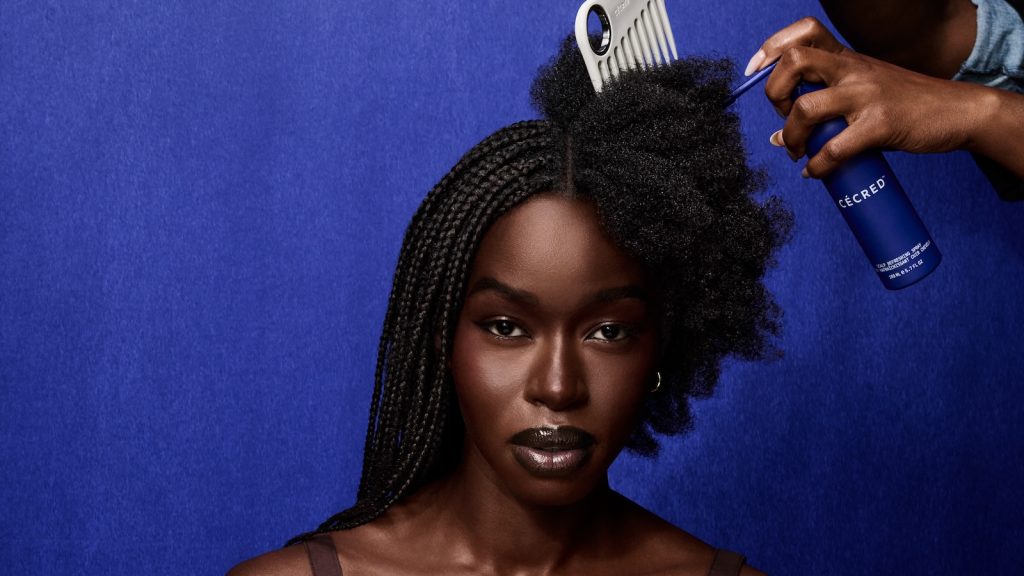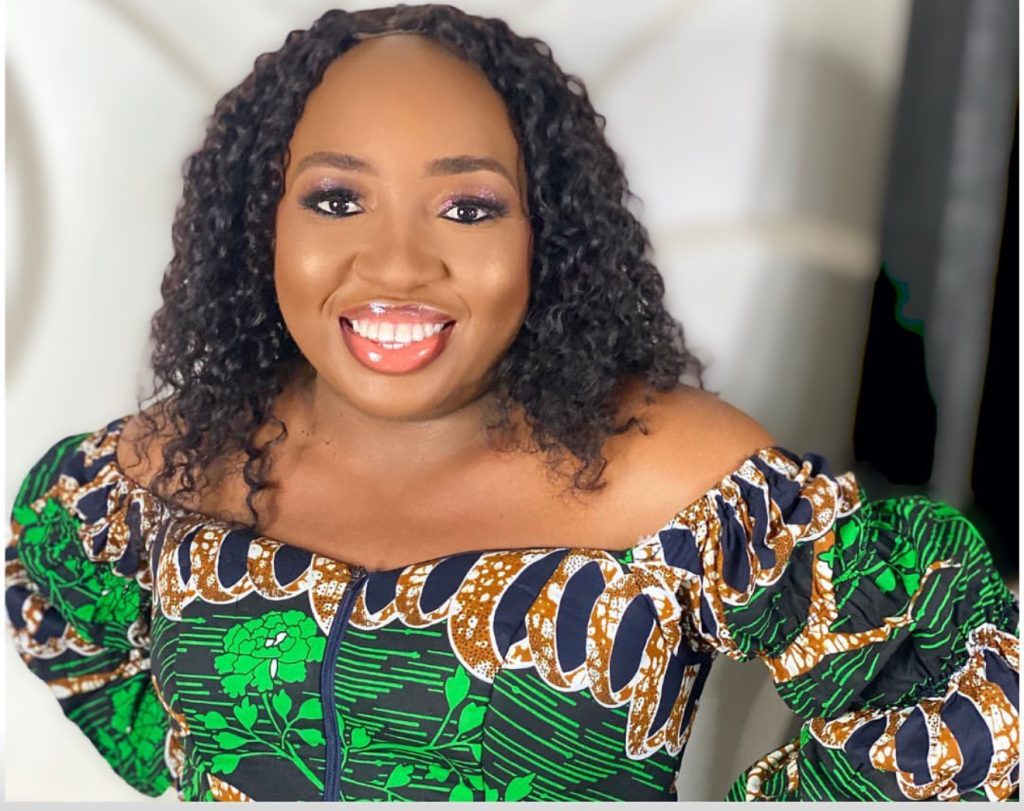Diarrha N’Diaye Joins SKIMS Beauty as EVP of Beauty and Fragrance

Kim Kardashian announces Diarrha N’Diaye, founder of Ami Colé, as the new Executive Vice President of SKIMS Beauty and Fragrance.
Why September Is the Secret Sweet Spot for Job Hunters (And You Might Be Missing It)

Job seekers, listen up: September isn’t just back-to-school season—it’s hiring season. Discover why the “September Surge” could be your golden ticket to landing a new role before the year ends, plus 5 steps to make the most of it.
Cécred Just Dropped Haircare Made for Your Protective Styles

Beyoncé’s haircare brand Cécred launches the “Protection Collection,” a five-piece line made for protective hairstyles with new PhytoFerment technology and luxe fragrance.
Louis Vuitton Has Officially Entered the Beauty Game

Louis Vuitton makes its grand debut in beauty with La Beauté — a luxury makeup collection led by Pat McGrath, featuring refillable lipsticks, eyeshadow palettes, vanity trunks and more.
Riccardo Bellini Steps In as CEO

Valentino names Riccardo Bellini as its new CEO, succeeding Jacopo Venturini. With Alessandro Michele leading design, the duo faces the challenge of reviving sales and navigating Kering’s stake in the maison.
La Mode Exclusive Interview: Chikodinaka Perpetua Chima — Redefining African Luxury with HN Clothings

La Mode Magazine sits with Chikodinaka Perpetua Chima, the visionary founder of HN Clothings, to discuss redefining African luxury through craftsmanship, culture, and global partnerships with boutiques like Folklore, Coveti, Boujee, Fazal, and Maison Vex.
Oluwabunmi Bolawa’s Journey as an Entrepreneur: The Challenges and Successes in Building a Fashion Brand

The fashion world has undergone a remarkable transformation in the 21st century, and Africa has played an increasingly central role in shaping that evolution. A continent once overlooked in global fashion circuits is now home to some of the most daring, innovative, and culturally resonant designers of our time. These trailblazers are not only redefining aesthetics but also rewriting the business models of fashion through sustainability, heritage preservation, and authentic storytelling. Among this new generation of bold creators stands Oluwabunmi Bolawa, the visionary entrepreneur and Creative Director behind Nella Stitches, a brand that has steadily risen to become synonymous with elegance, innovation, and purpose. Her entrepreneurial journey is one marked by resilience, originality, and an unwavering belief in the transformative power of fashion. The Vision Behind Nella Stitches Founded with a mission to bridge sustainability and cultural storytelling, Nella Stitches was born out of Oluwabunmi’s desire to challenge the norms of fashion both in Nigeria and globally. At the heart of her vision lies a deep-rooted appreciation for African heritage, particularly the rich traditions of the South West region of Nigeria. Her collections feature bold patterns, daring silhouettes, and unique fabric pairings that reflect the dynamic duality of African modernity and ancestral pride. Unlike many fashion entrepreneurs who launch their brands within the comfort of established industry hubs, Oluwabunmi began her journey outside the mainstream, away from the glamour of Lagos Island where fashion titans like Lanre Da Silva Ajayi and Abba Folawiyo dominate. Instead, she started with little more than passion and grit, challenging the idea that creativity must reside within elite circles. Overcoming Structural and Cultural Barriers Breaking into Nigeria’s competitive fashion industry was not easy. The structural challenges were immense, limited access to capital, sourcing sustainable materials locally, and navigating a fragmented supply chain. Additionally, Lagos’s fashion elite often gatekeep opportunities, making it particularly difficult for designers without influential connections to get noticed. Despite these odds, Oluwabunmi refused to be sidelined. She embraced her outsider status as a strength, crafting designs inspired by underrepresented voices and regional aesthetics. She infused South West narratives into her collections, giving voice to communities often left out of the luxury fashion conversation. One of her most powerful decisions was to champion sustainable fashion. With the fashion industry accounting for 8–10% of global carbon emissions (according to the United Nations), Oluwabunmi made a conscious choice to use recycled and repurposed materials. Her approach was not only ethical but also creative, proving that sustainability can elevate design rather than restrict it. Rising Above the Noise As the brand gained visibility, Nella Stitches began appearing in national and international runway shows. Her unique blend of high-fashion techniques and cultural relevance struck a chord with diverse audiences from local fashion enthusiasts to global buyers. Yet, with rising acclaim came new challenges. One persistent issue has been design theft. Like many African designers, Oluwabunmi faced the disheartening reality of having her original designs copied and mass-produced without credit. It’s a battle that many creatives in the Global South continue to fight, where legal protections for intellectual property are weak or poorly enforced. Still, her response was not retreat but reinvention. Oluwabunmi doubled down on her authenticity, further investing in storytelling, transparency, and direct engagement with her audience. Her loyal client base comprised of celebrities, dignitaries, and discerning customers grew not just because of the beauty of her garments but because of the brand’s integrity and purpose. Expansion Beyond Borders In a bold strategic move, Nella Stitches expanded operations and relocated its headquarters to South Africa, positioning the brand at the intersection of African continental influence and global export potential. From this new base, the label now serves clients across Africa, Europe, and North America. The South African fashion scene, known for its progressive industry policies and appreciation for indigenous artistry, has provided fertile ground for Oluwabunmi’s continued growth. Nella Stitches collaborates with local artisans, trains young designers, and participates in global sustainability forums redefining what it means to be a modern African fashion house. Entrepreneurial Success with a Human Touch What sets Oluwabunmi apart is not just her design talent, but her entrepreneurial mindset. She has built a thriving business without compromising her values. Her leadership is hands-on and community-driven. Whether mentoring upcoming designers or advocating for circular fashion systems, Oluwabunmi continues to inspire a new generation of ethical fashion leaders. Her story is proof that entrepreneurship is not only about profit but about purpose. She took adversity, limited resources, industry bias, and environmental crisis and turned them into creative fuel. Nella Stitches is more than a brand; it is a movement that calls for intentional, conscious fashion built on identity, sustainability, and resilience. Looking Ahead The African fashion industry is teeming with potential, but it remains a space with structural inequalities and untapped opportunities. Designers like Oluwabunmi Bolawa are the vanguard of this new wave merging business acumen with cultural intelligence. As her influence continues to grow, Oluwabunmi remains committed to transforming lives through fashion. Her story is not just one of individual success but a powerful reflection of what is possible when vision meets perseverance. We can only expect to see more groundbreaking collections, industry-defining collaborations, and social impact from this exceptional designer in the years to come
Sandra Odige, CEO of La Mode Receives Honorary Doctorate in Media and Communications At Chichester United kingdom!

Sandra Odige, esteemed media entrepreneur, visionary fashion leader, and CEO of La Mode Group UK, has been awarded an Honorary Doctorate in Media and Communications by Myles Leadership University. The prestigious ceremony was held at the historic Chichester Cathedral in West Sussex, United Kingdom on July 19th. This remarkable honor recognizes Odige’s outstanding contributions to media, fashion, communication, and cultural advocacy over the past decade. As the Publisher and Founder of La Mode Magazine and a trailblazer for women in media, Sandra has reshaped the fashion media landscape with bold storytelling, purpose-driven campaigns, and a global platform that champions inclusion, empowerment, and African excellence. From launching La Mode Magazine in 2011 while still in banking, to building La Mode Group UK into an international brand, Sandra Odige has consistently combined creativity, leadership, and vision. Her work in media and communications has not only influenced industry trends but has also empowered underrepresented voices through initiatives like the Green October Event and Disability Inclusion Campaigns. “This recognition is deeply humbling,” said Dr. Sandra Odige during the ceremony. “It reaffirms my lifelong mission to use media as a tool for transformation. I’m grateful for the journey, the challenges, and the global community that continues to support and amplify our message.” The honorary doctorate from Myles Leadership University places Sandra Odige among a select group of leaders recognized for shaping the future of media and communication across borders. About Sandra Odige Sandra Odige is an award-winning media entrepreneur, fashion advocate, and global speaker. She is the Founder and Publisher of La Mode Magazine and the CEO of La Mode Group UK. Her work spans across Africa, the UK, and internationally, empowering thousands through fashion, storytelling, and philanthropy. About Myles Leadership University Myles Leadership University is an independent institution committed to recognizing excellence and leadership in global education, innovation, and service. The university honors individuals who have made significant societal contributions through honorary doctorate recognitions.
The 5 Questions You Should Be Asking at Job Interviews (If You’re Not Trying to Hate Your Life Later)

Let’s be real: job interviews are basically personality tests in business casual. You walk in (or log on) feeling like you studied for an exam where the questions are vibes-based, and somehow you’re expected to answer like a seasoned TED Talk speaker. But here’s what people forget: you’re not the only one being assessed. This isn’t a one-way interrogation — it’s your moment to gather intel too. And asking the right questions at the end? That’s your power play. We tapped a Certified Career Coach Expert for the inside scoop, and trust us — these 5 questions will not only make you memorable, they’ll help you figure out if the job is even worth your emotional investment. 1. “What makes someone really thrive here… and what makes someone struggle?” Forget the “we’re like a family” fluff. This one peels back the curtain. How they define success (and failure) says a lot about expectations, leadership style, and whether they value humans or just KPIs. If they can’t articulate it? 2. “What’s one challenge the team is currently facing?” Translation: Are you walking into a fire or a fixer-upper with a strategy? Bonus: It gives you a chance to position yourself as the solution. Confidence, but make it tactical. 3. “If you could change one thing about the company or team, what would it be — and why?” This one’s sneaky-smart. It keeps the energy positive while inviting real talk about weak spots. And the “why” helps you understand if the pain points are being addressed… or just being ignored. 4. “Do you have any hesitations about my fit for this role?” Yes, it’s bold. But it screams self-awareness and growth mindset. Even if the interviewer says no, you’ve just left them thinking, wait, they actually care about doing this well? That’s main character energy. 5. “Can you share an example of when your team culture really showed up in action?” Buzzwords are cute — but can they be backed up? If they say “collaborative,” you want receipts. A real-life example of how they walk the talk tells you way more than any company “About” page ever will. TL;DR: Asking smart questions isn’t just a way to flex your curiosity — it’s how you reclaim your seat at the table. Because you are also interviewing them. And if they can’t handle a few well-placed questions? Maybe they’re not the ones.
Dreaming of a White Lotus-Style Break? Here’s the Career Detox That Might Save Your Sanity (No Murder Involved)

We’re not saying a week in Thailand with zero emails, unlimited smoothies, and a massage at 3 PM wouldn’t change our lives… but let’s be real: a White Lotus vacation is expensive, and murder plots are stressful. The good news? You don’t need a luxury getaway to reset your life. What you actually might need — especially if that Sunday Scaries™ dread hits by Thursday — is a career detox. And no, that doesn’t mean quitting your job and moving to Bali (unless…?). It means pausing, reflecting, and figuring out how to actually enjoy the thing you spend 70% of your adult life doing: work. ✦ So what is a career detox? Career educator and viral TikToker Hanna Goefft recently dropped the blueprint. Her take? A good detox starts with an energy audit, not a resignation letter. The goal? Make sure you’re heading somewhere that feels right — not just looks good on LinkedIn. Here’s how to do it: Step 1: Audit the vibes (a.k.a. your energy) Grab a notebook (or Notes app if you’re that girl). List every single task you do at work — from morning emails to end-of-week reports. Estimate how much time you spend on each. Then rate them: Now step back and ask: Where is my time going? Is it where I want it to go? Spoiler: If your 4s and 5s are barely cracking 20%, we’ve got work to do. Step 2: Spot the magic (and the red flags) Look closely at the stuff you actually like. Are they creative tasks? Problem-solving? People-based? Solo deep-focus time? Notice the patterns — not just the job title, but the energy behind it. Because “I want to be a creative strategist” means something different if what you really love is building Notion dashboards and editing Reels. Step 3: Pivot without panic Once you’ve got clarity, it’s time to move. If you want to evolve within your current role, talk to your manager. Ask for more of what lights you up. (Yes, it’s scary. No, it’s not selfish.) If you’re planning a total career shift, this is your intel-gathering era. Stalk jobs on LinkedIn. Listen to industry podcasts. DM someone in that dream role you’ve bookmarked 3 times already. Ask the real questions: Step 4: Test before you leap It’s easy to romanticize a role you’ve never tried. So before you jump, experiment. Start a side project. Take an online class. Volunteer. Whatever gets you closer to your 4s and 5s. Because liking the idea of something is not the same as liking the reality. Final Word: The detox isn’t one and done. Your career isn’t a one-time decision — it’s a playlist, and sometimes, you’ve gotta hit skip. Even if you don’t land your dream job overnight, a detox helps you move with intention. And if you find out something isn’t for you? That’s still progress. So no, you don’t need a plane ticket or a full moon in Virgo. You just need to pause, listen, and realign. Because the goal isn’t just to survive work — it’s to build a career that doesn’t make you want to throw your laptop off a balcony.
